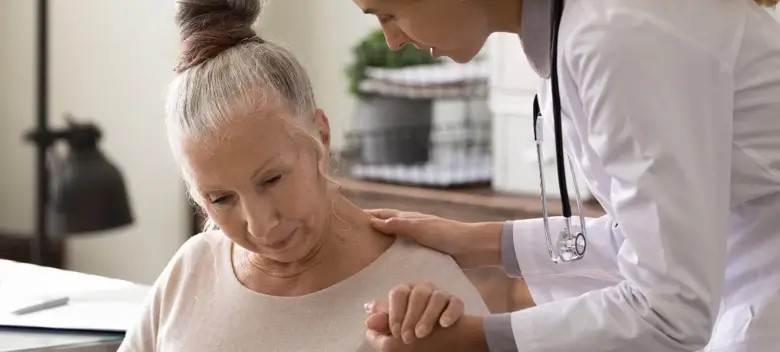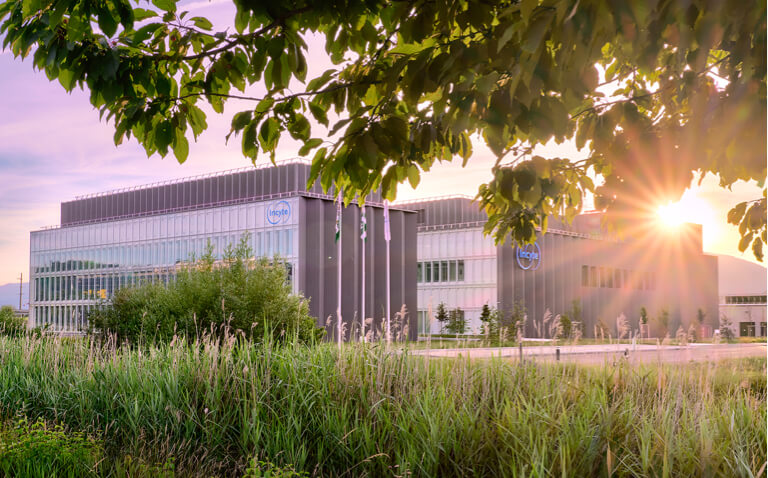September 14, 2023
Understanding Diffuse Large
B-cell Lymphoma (DLBCL)
A blood cancer diagnosis, which happens approximately every three minutes in the U.S., is life altering. It can be overwhelming for patients and caregivers to understand what it means for them and the future.
Blood cancers fall into one of several categories, including leukemia, lymphoma, myeloma, and myeloproliferative disorders. Diffuse large B-cell lymphoma (DLBCL), a cancer that affects certain white blood cells called B cells, is the most common type of non-Hodgkin lymphoma in adults worldwide.
Patients’ experiences and needs are unique, and through our conversations with patients living with DLBCL, the path to diagnosis is varied. Some thought they had common ailments like a muscle strain or fatigue, until the symptoms worsened to the point where they were unable to go about their daily lives–for example, taking care of their basic needs independently, getting out of bed or driving a car.

At Incyte we are committed to supporting those living with blood cancers, including DLBCL, by raising much-needed awareness of these conditions.
Incyte’s Lance Leopold, M.D., Group Vice President, Clinical Development Hematology and Oncology shares key facts for those with DLBCL.
Q: What is DLBCL?
Lance Leopold: DLBCL is a fast-growing cancer that affects white blood cells known as B cells. B cells normally help the immune system defend against infections caused by bacteria or viruses. However, in DLBCL, abnormal B cells become cancerous. This means that they multiply uncontrollably and live longer than normal cells.
Q: Who is affected?
Lance Leopold: DLBCL is most frequently diagnosed among those over the age of 65, however it can occur at any age. It’s also more commonly found in men as they are about 1.5 times more likely to have DLBCL than women. Additionally, certain medications or conditions that suppress the immune system can increase the likelihood of developing the condition.
Q: What are common symptoms of DLBCL?
Lance Leopold: Symptoms of DLBCL are often nonspecific and can include: fever for no known reason, pain in the chest, abdomen, or bones for no known reason, feeling very tired, weight loss for no known reason, skin rash or itchy skin, and drenching night sweats. If you’re experiencing symptoms like this, be sure to talk to your healthcare provider.
Q: The terms “relapsed” and “refractory” are often used in reference to DLBCL. What do they mean?
Lance Leopold: Unfortunately, it’s not uncommon for people with DLBCL to respond to initial therapy but then experience a relapse, meaning the cancer returns, or for the cancer to become refractory (not respond to treatment). If this has happened to you or a loved one, know you are not alone as this occurs in up to 50% of cases.
Recently, there have been exciting advances in treating relapsed and refractory DLBCL. Contact your health care provider for additional information.
Healthcare decisions following any diagnosis, including DLBCL, are personal and needs and goals will be different for every patient. Honest conversations between patients and their care team can often be important for determining the best approach.
Incyte has developed resources to help educate and empower people living with DLBCL and their caregivers. In North America, “Actively Participating In Your Care: A toolkit for Those Living With or Caring For Someone with DLBCL,” was developed in partnership with patients, care partners, advocates, and healthcare professionals. In Europe, the “Living with DLBCL” toolkit, was created in partnership with European patient advocacy groups and is available in multiple languages.




